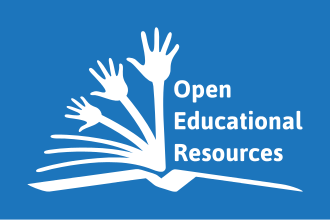Image source: https://commons.wikimedia.org/wiki/User:Jonathasmello
Based on my reading of the OER Research Hub evidence report (de los Arcos 2014) the three key issues in OER I identified were the following:
1. I agree with the suggestion in the H817 Week 8 material that the accreditation of informal learning is a key issue in OER. It is significant because a key aim of OER is to provide education to ‘expand access to learning for everyone, but most of all for non-traditional groups of students, and thus widen participation’ (OECD 2007, p.9). In addition, ‘effective use of knowledge is seen more and more as the key to economic success, for both individuals and nations’ (ibid p.9). In many cases, the only way to transit from poverty to a basic standard of living for the majority can be that important ‘piece of paper’ that someone could gain from their participation in open learning.
In short, my preoccupation in my assessment of the role of OER is critical; it is all about eliminating the gap between the privileged and the disempowered and it is frustrating to me that HE bodies, researchers, policymakers etc. so obfuscate what should unequivocally be the aim of OER – to eliminate inequality of opportunity. De los Arcos (2014, p.33), examining hypothesis K - (Informal assessments motivate learners using OER) is significant in this regard because I want there to be ways soon by which OER can be a route to taking formal exams and gain formal accreditation.
The issue is being addressed by research by the OECD and its work with over 20 countries to recognize informal learning and badges and P2P have been mentioned. What is needed is for us to continue to look forward and to theorize what future tech and non-tech possibilities may be on the horizon for open credentialing.
2. Leading directly on from my previous point, the second important issue I wish to extract from my reading of the OER Research Hub evidence report (de los Arcos 2014, p.17-20) is about how the Open movement needs to justify itself by being a clear bridge to more equitable access to education. OER must show itself to be about widening participation in education – which it does not do sufficiently now.
The statement from the report that some ‘Learners are using OER in a number of ways that can be interpreted as leading to greater access to education’ is not an unequivocal statement that it does. Neither is the statement: ‘Are open education models leading to more equitable access to education? The emergent picture is mixed’ (ibid p.17 my italics).
Another statement that tries to make the most of the disappointing greater access issue results so far but really ends up portraying the researchers as clutching at straws is the nonsensical: ‘Some learners are using OER as a replacement for formal education which they might not otherwise have access to’ (p.18). I also find the arguments about retention tangential to the issue of access for traditionally excluded groups. The research only covers gender and disability - not in any depth - and there are excluded groups in that.
The Sustainable Development Goal, particularly goal 4 (Education for All) to which 193 countries have signed up is one way this is being addressed, particularly through the UNs OER initiatives. We may have to wait until 2050 to see that according to Duc Pham, Professor of Engineering, University of Birmingham.
3. My third important issue in OER is whether participation in OER
pilots and programs lead to policy change at an institutional level (p.33)
which concerns hypothesis J. I think the issues I identified (1 and 2 above) can be resolved by policy and practice changes stemming from governments but I feel institutions are slow and reluctant to change. That (the slowness and reluctance to change) is an issue where we need to ask ‘why’ and put pressure because I feel the root is, we do not strongly wish to discuss and address inequality in society. This is being addressed through organizations like the Commonwealth of Learning (COL) and the open policy network working at societal, government and institutional levels.
References
de los Arcos, B., Farrow, R., Perryman, L.-A., Pitt, R. and Weller, M. (2014), OER Evidence Report 2013–2014, OER Research Hub [Online]. Available at http://oerhub.net/ research-outputs/ reports/ (Accessed 21 March 2020).
OECD (2007). Giving Knowledge for Free: The Emergence of Open Educational Resources. Paris: OECD. [Online]. Available at http://213.253.134.43/oecd/pdfs/browseit/9607041E.pdf (Accessed 21 March 2020).
